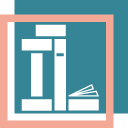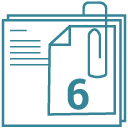Home / Guide 6: Landing in Canada
Guide 6: Landing in Canada
GSB
SUMMARY
You will only become a Permanent Resident of Canada when you cross a Canadian port of entry with your valid passport and your valid Canada Immigration (Permanent Resident) Visa. This is referred to as ‘landing in Canada’.
- make sure you’re entering Canada before or on the expiry date shown on your Confirmation of Permanent Residence (CoPR)
- make sure that you are the same person who was approved to travel to Canada
- ask to see your passport and other travel documents
- ask you a few questions to make sure you still meet the terms to immigrate to Canada
Ready to take the next step towards your Canadian immigration journey? Fill out the form below and embark on your path to new opportunities.
IF YOU ARE ALREADY IN CANADA
If you’re already in Canada, you will receive the instruction about your landing. You’ll need to have a short interview with an officer by getting an appointment at one of IRCC offices in Canada or by going to a Canadian “port of entry”(border crossing).
To find the land border closest to you (➨immilib.com/POE).
WHERE TO LAND IN CANADA
With a Confirmation of Permanent Residence (CoPR) you can enter, live, study or work anywhere in Canada.
You have full mobility rights as a Canadian resident but there are some exceptions. If you were granted your CoPR based on a Provincial Nominee Program (PNP) or one of the Quebec Immigration programs, it is recommended that you live in the province that nominated you through the immigration process.
You won’t be restricted from leaving the province. But Quebec and provincially-nominated immigrants sign and agree to a contract with the province and must demonstrate a genuine intention to live there in order to be granted permanent residence status in Canada.
Failing to show that you are willing to live in the province that nominated you may jeopardize your status.
MANDATORY DOCUMENTS TO BRING
When you arrive in Canada as a permanent resident, you (and all your accompanying dependents) must have:
- your valid passport and/or travel documents
- your Confirmation of Permanent Residence (CoPR) and your permanent resident visa (if you need a visa to enter Canada)
- proof that you have the funds to support yourself and your family after you arrive in Canada
- Quebec Selection Certificate(s) or CSQs – If you are immigrating to Quebec
THE OTHER DOCUMENTS TO BRING
- 2 copies of a detailed list of your belongings that you are bringing with you and their value in Canadian funds. You also need a list of the items that are arriving later and their value in Canadian funds.
- Personal certificates such as Birth certificate, adoption papers and Family records such as marriage certificate or divorce papers
- Medical records (such as immunization records) and Dental records
- Official school records for children
- Diplomas, degrees and transcripts
- Academic credentials evaluation report (if you had your education assessed before coming to Canada)
- An updated resume with references and work experience.
- Reference letters from previous and current employers
- Professional or trade licences or qualification certificates
- Valid driver’s licence, international driver’s permit or other identification documents
- Vehicle registration documents (if you are importing a vehicle into Canada)
Have all your documents translated into English and notarized before landing in Canada
FUNDS
If you bring more than $10,000 CAD (or the equivalent in another currency) per family or as single traveller into Canada, you must declare the amount when you arrive.
The Canadian Border Services Agency (CBSA) has the right to seize any money over $10,000 CAD that is not declared, you may need to pay a fine or face other penalties if you fail to declare money above the threshold.
Make sure to research the best banks in Canada and choose the one that offers the services you need at the right price. Open an account and transfer your money as soon as arrive in Canada.
Find an investment specialist from a bank who will offer you guidance on the investment opportunities in Canada.
SOCIAL INSURANCE NUMBER (SIN)
The Social Insurance Number (SIN) is a 9 digit number that you need to work in Canada or to have access to government programs and benefits.
A SIN is issued to one person only and it cannot legally be used by anyone else.
To apply for your SIN, simply gather all the required original documents (Proof or permanent residence and proof of identity) and take them to the nearest Service Canada office (➨immilib.com/SCO).
CANADA FREE PRE-ARRIVAL SERVICES
As a new immigrant to Canada, you, your spouse and dependants can receive free pre-arrival services funded by the Government of Canada. These services are available before you arrive and are meant to better prepare you for life in Canada.
Pre-arrival services are provided on behalf of Immigration, Refugees and Citizenship Canada (IRCC) by settlement service provider organizations. These service providers offer free information to help you with:
- Living and working in Canada;
- Getting your education, work experience, and professional licenses and certificates recognized in Canada;
- Connecting with employers, and with free supports when you arrive in Canada, including language training; and
- Connecting with others in your new community, including French-speaking communities.
If you are outside Canada, it is strongly recommend that you use pre-arrival services before you leave.
You can contact the organizations listed below to get help about living in Canada.
Active Engagement and Integration Project (➨aeipsuccess.ca)
This project offers in-person services in China, and online services globally, such as:
- general information about living in Canada
- orientation to education, health care, housing and transportation in Canada
- needs assessment
- referrals to community services
Languages of service: English, French, Cantonese and Mandarin.
Planning for Canada (➨planningforcanada.ca)
The program offers in-person services in India and the Philippines, as well as online services globally, including:
- general information about living in Canada
- orientation to education, health care, housing and transportation in Canada
- needs assessment
- referrals to community services
Languages of service: English, French, Cantonese and Mandarin.
Next Stop Canada (➨nextstopcanada.ca)
This organization offers online services globally, including:
- general information about living in Canada
- orientation to education, health care, housing and transportation in Canada
- needs assessment
- referrals to community services
- specialized programming for youth between 12 to 19 years old, such as connections to youth mentors
Languages of service: English, French, Arabic, Bengali, Cantonese, Farsi, Hindi, Kurdish, Mandarin, Romanian, Russian, Spanish, Tagalog and Urdu.
Connexions Francophones (➨connexionsfrancophones.ca)
This program offers in-person services in Morocco and online services globally. If you want to live in a Francophone community in Canada, they can help you with:
- information and orientation
- connections with Francophone local organizations
- needs assessment
- a personalized settlement plan with other links to in-Canada resources
Languages of service: French, English and Arabic.
Canadian Orientations Abroad (➨coa.iom.int)
This program offers specialized group orientation in local languages to refugees selected to resettle in Canada.
You can access support services on-site such as:
- child-minding
- translation
- interpretation
- transportation
Languages of service: French, English and Arabic.
When you register for pre-arrival services with one of the service providers listed above, you will be asked to provide a copy of the letter received from IRCC for the pre-arrival services. You can contact as many service providers as you like and receive as many services as you need, and these services are always at no cost to you.
You are also encouraged to take advantage of free Government of Canada resources available online, such as Welcome to Canada, the official handbook to help permanent residents prepare to come and settle in Canada. The handbook is available at (➨immilib.com/Welcome).
Canada is a bilingual country where both English and French are spoken. If you are interested in living in a French-speaking community outside Quebec, please visit (➨immilib.com/francophone).
ORGANIZATIONS TO HELP YOU FIND WORK
Many organizations can help you prepare to find work in Canada. They can help you:
- search for and find employment
- write your Canadian-style resume
- learn about Canadian workplace culture
- find a mentor with experience
- prepare to get your credentials recognized
Active Engagement and Integration Project (AEIP) (➨aeipsuccess.ca)
This project offers online services globally. It offers general employment services through information orientations, workshops and webinars.
Languages of service: English, French, Cantonese and Mandarin.
Canada InfoNet (➨jvstoronto.org)
This organization offers online services globally to help you prepare for work through webinars, job matching platforms and finding mentors.
Languages of service: English and French.
Settlement Online Pre-Arrival (SOPA) (➨arriveprepared.ca)
This organization offers online services globally. They offer support such as job-related online courses and webinars.
Languages of service: English and French (coming soon).
Canada InfoNet (➨jvstoronto.org)
Connexions Francophones (➨connexions-francophones.ca)
This program offers employment services to French-speaking newcomers wishing to settle in Francophone communities. Services include virtual job fairs, webinars, etc.
Languages of service: English, French and Arabic.
BuildON (➨buildonbatit.com)
This organization offers online services globally. If you plan on living in Ontario, BuildOn offers services that focus on construction, skilled trades and engineering
Languages of service: English and French.
ACCES Employment (➨accesemployment.ca)
This organization offers online services globally. They offer industry-specific job services, including one-on-one coaching, to help you prepare to look for jobs and to work in Canada.
Consult this organization if you want to work in the fields of engineering, entrepreneurship, finance, leadership, human resources, sales and marketing and supply chain management
Language of service: English.
Global Onboarding of Talent Initiative (GO Talent) (➨ictc-ctic.ca)
This initiative offers online services globally. They support newcomers from the information and technology sector to help you with sector-specific help, attend career events, find a job and get your credentials recognized.
Languages of service: English and French.
Integrating Newcomers (➨bccassn.com)
This organization offers online services to prepare newcomers for jobs in the construction industry.
Languages of service: English, French, Tagalog, Mandarin and Cantonese.
Pre-Arrival Supports and Services Program (PASS) (➨pass4nurses.org)
This program helps nurses prepare to work in Canada’s health-care field. It offers information about the nursing registration process and the Canadian health-care system.
PASS provides connections to sector-specific information including workplace practices in health care, mentoring with Canadian nurses, schools, the nursing registration process and regulatory bodies.
Language of service: English.
WELCOME TO CANADA!
Share:

